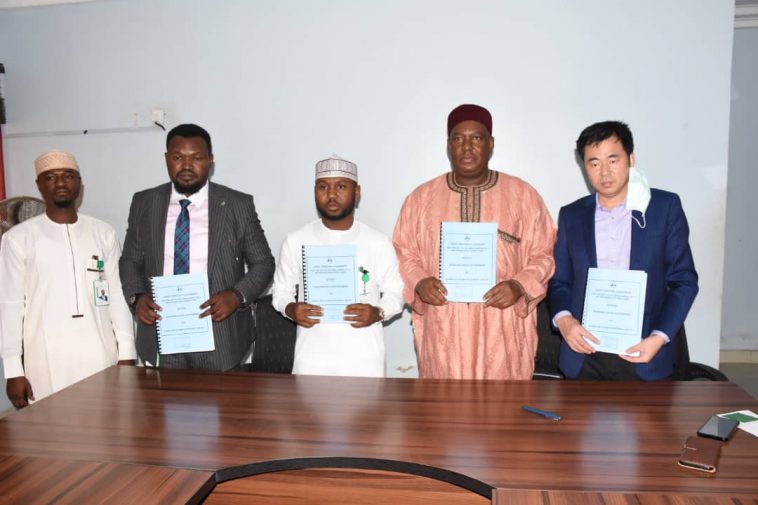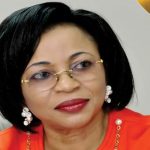The Nasarawa State Government early, this month signed a Memorandum of Understanding (MoU) with Marks and Adams Investment Limited to establish a Smart Meter Manufacturing Plant in the state.
The historic occasion was witnessed by top state government officisls, the investment company, Marks & Adams Investment Limited and technical partners.
The initiative to establish the smart meter manufacturing plant was conceived by a Nasarawa State industrial financier, Prince Mark Elayo, Turakin Keana who is also the Chief Executive Officer (CEO) of Marks & Adams Investment Limited.
The Nasarawa state government was represented at the occasion by the Managing Director of Nasarawa Investment and Development Agency (NIDA), Mr Ibrahim A. Abdullahi who signed on behalf of the State Government while Prince Elayo signed for Marks and Adams Investment Limited.
The two parties will jointly raise the sum of $1.5 million to finance the project. This amount will cover land, equipment and personnel costs. The plant will sit on a hectare of land.
The Nasarawa smart Meter Manufacturing project is the first of it’s kind in northern Nigeria and the third in the country.
By its design, the plant has Administrative Block, Showroom, CKD Entrance, Meter Assembly Line, Meter Calibration, Certification & Quality Control, Loading Bay and Warehouse.
The Nasarawa Smart meter plant line has capacity to produce 10,000 meters per month, bring to a total of about 120,000 meters per anum.
A 2016 meter status report produced by the Nigeria Electricity Regulatory Commission (NERC) had it that about 3 million registered power consumers’ accounts were unmetered. The number grew in 2017 to about 4 million and In 2019 the figures of unmetered electricity consumers hit 5 million.
By recent estimates, the metering gap based on customer enumeration data is over 10 million. Unless the metering gap is closed or narrowed, electric power consumers and producers alike will not get value for their expenses and as such, no significant investment can crystallise in the sector.
The huge metering gap in Nigeria is a major contributor to the liquidity crisis and continuous poor performance of the power sector. The project therefore has a very promising output potentials that can be commercialised as electricity distribution companies, government and owners of housing estates will acquire the meters.
In fact, the market opportunity goes beyond Nigeria because the ratification of the African Continental Free Trade Agreement offers Nigerian manufacturers a large pool of consumers across Africa.
With the existence of a power substation, cargo airport in Lafia and Lafia as a gateway to many parts of Nigeria, the meter plant will seamlessly produce its product and build capacity of vocational and technical education of the teeming youth populace of Nasarawa State and beyond.
Marks & Adams Investment Limited is an indigenous Engineering and Construction Company that has been in operations since 2011 when it was incorporated as a limited liability entity under the laws of the Federal Republic of Nigeria. It is registered with the Department of Petroleum Resources of the Nigerian National Petroleum Corporation (NNPC) and the Federal Inland Revenue Service (FIRS).
Due to its track records, messrs. Mark & Adams Investment Limited was picked by the Nigerian Electricity Regulatory Commission (NERC) for the Meter Rollout Plan under the Kaduna Electricity Distribution Company (KAEDC). In November 2017, the company signed a contract with KAEDC to supply 200,000 pre-paid meters to the distribution company’s customers across its four states of operations: Kaduna, Kebbi, Sokoto and Zamfara. The project cost $45m (N14.1bn). This contract includes a 10-year metering work with KAEDC.
We may recall that smart metering was introduced in Nigeria in 2005 to eradicate customers’ complaints of over-billing and other related matters. Customers have by and large been happy since the introduction of the prepayment metering system.
However, there are still concerns as the challenges faced by Nigerians in accessing and using the prepaid metering system are huge. Repeatedly, government has vowed to tackle the problems yet they are always there, staring power consumers in the face. Some of the challenges are absence of vending infrastructure, non-tripping of the contractor, the cost of acquiring the meter and delays in receiving and installing the prepaid meters.
These will become things of the past if the plan to build a meter plant in Nasarawa State does comes through.
The importance of this project cannot be overemphasized. Apparently, it will step up Nasarawa State industrial base, generate huge employment and improve overall standard of living. It will grow the electric power value chain in Nigeria. It will reduce foreign exchange spending. As the value of the naira is very low against the dollar, it cannot be much better than now to tackle importation of the electricity measuring device.
The Executive Governor of Nasarawa State, Engr. Abdullahi A. Sule has shown tremendous goodwill to this endeavour for which the investor is expected to quickly leverage on the refreshing enthusiasm of the governor for the timely execution of this project.
SA Lafia resident Yakubu Osabo excitedly said “it is now time for the Home of Solid Minerals to see a turnaround as Investors haven who should hasten to be part of the success story of the A. A. Sule-led administration in the state”
“Marks & Adams Investment Limited, being a wholly indigenous concern in the State should not rest on its oars in doing what it can in to get rolling” “The company has the capacity to deliver high quality smart meters, develop acceptable computerization of the Prepaid Metering System and provide continual training to electricity workers.
From all this, apart from helping the people of Nasarawa State and indeed the entire northern region of Nigeria to end the problem of access to prepaid metering system, this project will boost the economy as envisaged by the President Muhammadu Buhari administration.
Electricity supply has remained the driving force behind many developmental activities which revolve around industrial, commercial and household systems. Electricity costing and distribution to Nigerians remain a major wheel for economic growth.
The meter plant will no doubt increase Nigeria’s metering rate, eliminate arbitrary estimated billing and support Nigeria’s economic recovery by reducing collection losses and increasing financial flows to achieve 100 percent market remittance obligations of the Distribution Companies (DisCos). It will also improve network monitoring capability and availability of data for market administration and investment decision making.
This project when fully executed, will indeed, be a landmark in the annals of the state’s administration.






